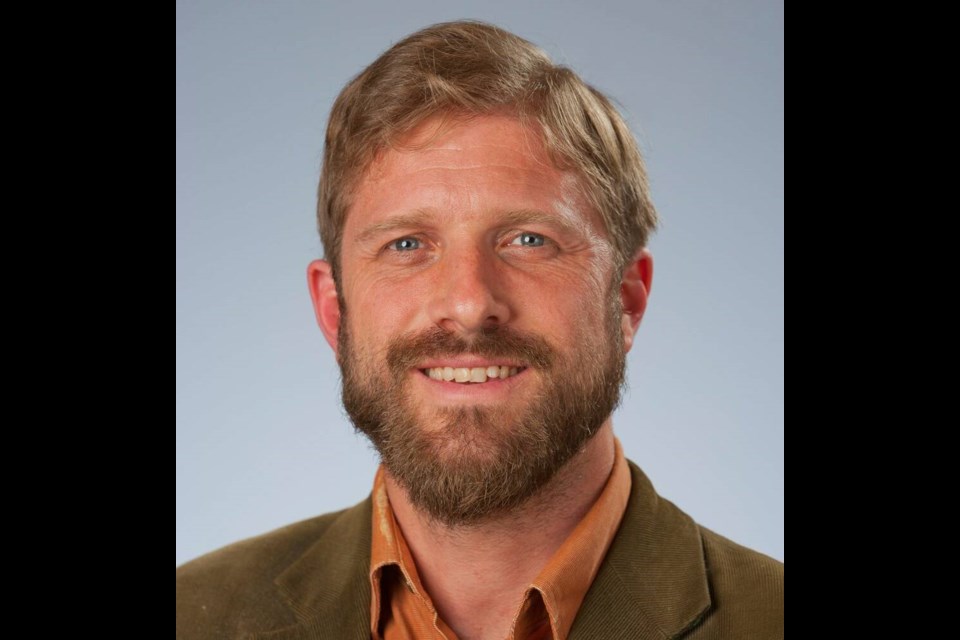Ben Isitt
Website:
Facebook:
Twitter:
Instagram:
Are you associated with or running as part of a slate? If so, which one?
No
Do you live in the municipality where you are running, and if so, for how long? If not, what is your connection to that community?
Yes
What is your occupation, and for how long?
Historian, lawyer and author. I have held a PhD in History and worked as a historian since 2008, including teaching at several universities and publishing six books in British Columbian, Canadian and global history. I earned a PhD in Law in 2018. On October 1, 2022, I am being admitted as a Barrister and Solicitor in British Columbia, having completed my legal training concurrently with my duties as an elected official.
Tell us about your previous elected and/or community experience.
I have served as City Councillor and Capital Regional District Director since 2011, working with colleagues with diverse views from across the political spectrum to advance affordable housing, climate action, sustainable transportation, strong community services, and open and cost-effective local government. I have also volunteered extensively with neighbourhood associations and grassroots organizations working to advance social justice and protect natural ecosystems. During the Covid-19 pandemic, I founded the Red Cedar Café, a charitable social enterprise aimed at building community and providing access to nutritious food for community members in need. In this volunteer role, I helped serve 150,000 meals.
Why are you running? What’s your motivation?
I am running to continue building a caring and sustainable city and region. While we may not agree on every issue, I’ve heard that community members value having an experienced, compassionate, independent voice in local government. They also value the energy I devote resolving individual residents’ concerns. With your support, I will continue contributing as your City Councillor and CRD Director, providing strong oversight of the civic administration and civic finances, responding to your concerns, and pursuing collaborative solutions to address the challenges facing our city and region.
What are your top three issues?
(1) Affordable housing through land acquisition and inclusionary zoning. This includes establishing robust City and CRD programs of land acquisition, in partnership with co-ops and public agencies, to activate the land base for non-market housing.
(2) Climate action by expanding fare-free public transit for everyone, starting with seniors, and supporting sustainable transportation, low-emission building retrofits, and protecting natural areas, including the urban forest canopy and old-growth rainforests.
(3) Building a strong, inclusive community, by supporting neighbourhoods, community centres, libraries, local enterprise and the Arts, nurturing local food systems, and providing open government grounded in community participation, equity and fiscal responsibility.
What’s your vision for your community in 25 years?
A healthy, friendly, democratic place, where people have access to housing, sustainable transportation, nutritious food, greenspaces, arts, and community connections. Each neighbourhood has a mix of ages, incomes and ethno-cultural backgrounds, with employment, education, culture, healthcare and social services close to peoples’ homes. Indigenous people are full participants. The community is connected by rapid electric fare-free transit, with electric rail and ferry connections up island and to the mainland. Within and between neighbourhoods, people get around by walking, wheelchairs, scooters, bikes and other modes in safe corridors. Parks are plentiful. Wilderness areas are protected for carbon sequestration. Farmlands are activated for employment and food security. Clean jobs abound. A caring, sustainable place where we care for each other and natural ecosystems that sustains us all.
What’s one “big idea” you have for your community?
Expanding fare-free public transit for everyone, starting with seniors and low-income people, paid for through the tax system to cut carbon emissions, reduce congestion on local roads, and remove economic barriers to mobility. This follows a progressive example from dozens of communities around the world. The current City Council introduced fare-free public transit for young people under age 19. This program has now been embraced by the Provincial government and expanded across BC for people under 13. The next step is to invest $4-million of City of Victoria tax dollars in the 2023 Budget to provide an annual transit pass for senior citizens, supporting sustainable mobility. Public transit also needs substantial improvements in service levels, including bus rapid transit and improved frequency in all neighbourhoods.



